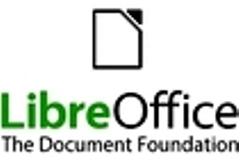

In the open-source movement, the forking of a project is often a contentious matter, and can lead to the demise or mothballing of the applications that spawn from the original software. In many ways, it’s a “nuclear option” as developers choose their allegiances and take their skills with them. Often, the result is the loss of momentum as well as mindshare for all the spawned projects. But it’s not an inevitable one: the January release of LibreOffice 3.3 shows that sometimes forking can lead to a positive outcome.
LibreOffice 3.3 is as polished as one might expect in a project that, for all its novelty, has many years of development work behind it. Although it’s probably not going to gain widespread acceptance in the corporate world, any outfit that’s looking for a solid toolset for users who don’t require a lot of handholding, or integration with Microsoft’s Office server applications, could do much worse than to choose it. For many users, this will have everything necessary in a desktop-productivity suite, for an unbeatable price: free, that is.
The LibreOffice story began in late September 2010, when a group of dissidents from the OpenOffice.org project established a group known as TDF (The Document Foundation). The new organisation dedicated itself to continuing the legacy of the open-source office suite based on the former StarOffice from Sun Microsystems. The systems maker had for many years sponsored, if not actually directed, OpenOffice.org.
After Oracle purchased Sun in early 2010 and terminated the OpenSolaris operating-system project later that year, the dissidents who would form TDF feared that a similar fate would befall their pride and joy. Oracle was nevertheless invited to join the foundation and donate the OpenOffice.org brand, but the company asked those dissidents who were council members of the organisation to resign on the grounds of conflict of interest; many did so by the end of October 2010.
However, TDF continued work on a fork of OpenOffice.org 3.3, based on development work in progress at the time of the schism. A number of open-source vendors, including Canonical (sponsors of the popular Ubuntu distribution), Red Hat and Novell adopted the TDF suite under the name LibreOffice. The Turkish Pardus 2011 distribution claims the honor of being the first major release to include LibreOffice 3.3 as its default office suite.
LibreOffice 3.3 is available for BSD, Linux, Mac OS X, Unix and Windows, and is licensed under the terms of the GNU LGPL (Lesser General Public License) version 3. Obviously, one of the most attractive features of LibreOffice is its nonexistent price tag. Like many open-source tools, its support is community-based. One should expect to see big-name Linux distributors such as Novell and Red Hat offering support packages, once they begin bundling it with their desktop offerings.
The suite consists of five or six applications, depending on how one counts them: the Writer word processor, the Calc spreadsheet, the Impress presentation creator and its associated Draw component, the Math equation editor and the Base database manager; a PDF creation tool is included as well. If those names seem familiar, they should; they are identical to those of the corresponding tools in OpenOffice.org 3.3, which was released on 25 January, just hours after LibreOffice 3.3.
But LibreOffice is more than just a badge-engineered version of OpenOffice.org. A number of features are unique to LibreOffice, and that itself is a significant achievement, considering that those have been implemented in the roughly three months since TDF forked from the OpenOffice.org effort.
Continued on page 2
Page: 1 2
OpenAI chief operating officer Brad Lightcap to oversee international expansion as company consolidates lead in…
Chinese researchers publish details on device that could wreak havoc on undersea communications cables in…
Former Intel chief Gelsinger expands role at Gloo, becoming executive chairman and head of technology…
MEPs add to Commission pressure for second EU Chips Act amidst industry calls for renewed…
Smartphone maker Xiaomi reportedly raises about $5.5bn in Hong Kong share sale as it invests…
BYD's Qin L EV sedan starts at about half the price of Tesla's Model 3,…
View Comments
Technical writers produce a wide range of documents, indexes assist users to find specific information within a document, in print or online.
OpenOffice.org/LibreOffice Writer is not a strong competitor to Word for indexing.
Embedded indexes does not allow you to make:
- Cross-reference ("See" and "See also")!
- Sort Override function for the entries (or keys).
- Multiple Indexes.